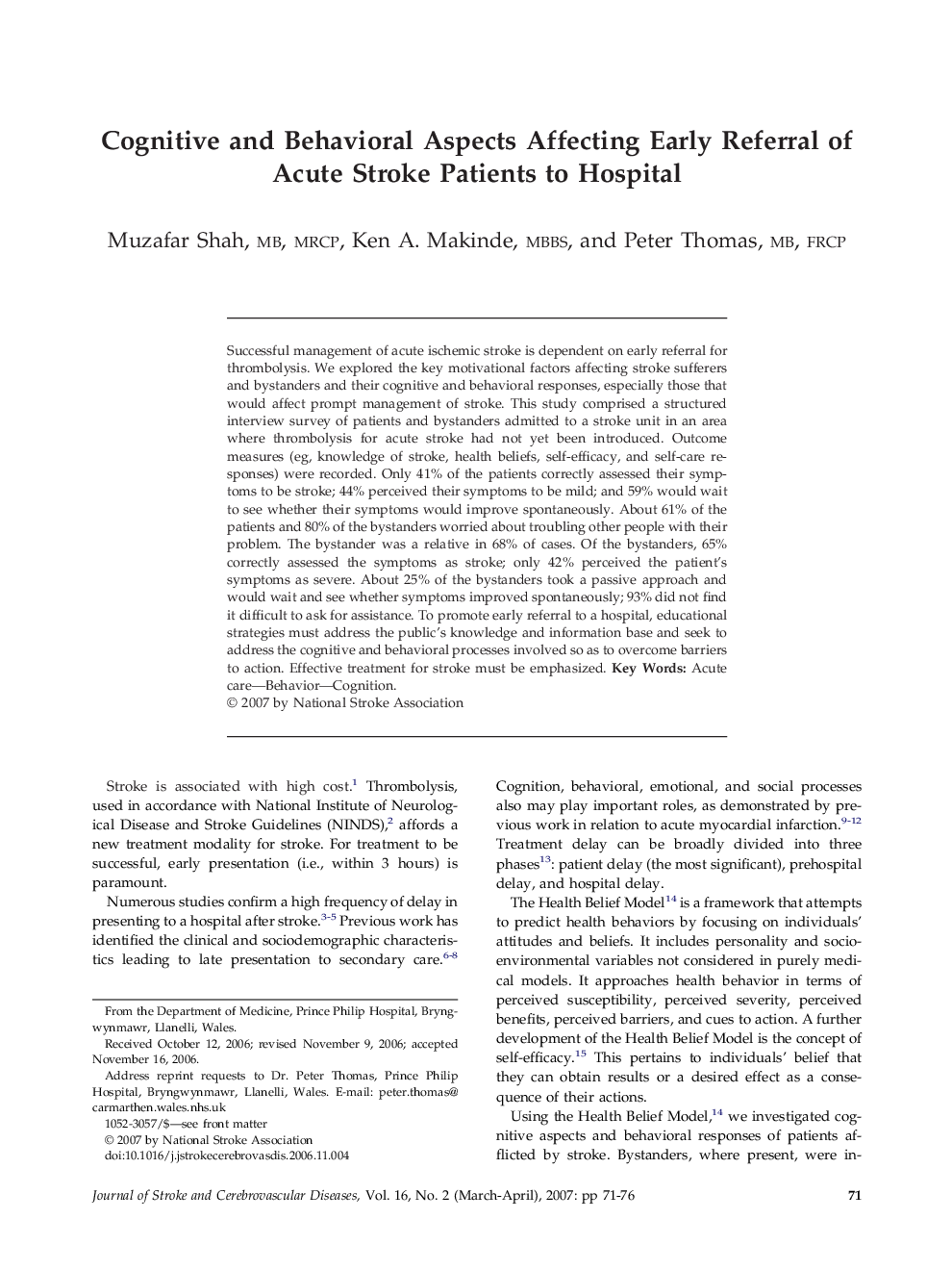| Article ID | Journal | Published Year | Pages | File Type |
|---|---|---|---|---|
| 2704813 | Journal of Stroke and Cerebrovascular Diseases | 2007 | 6 Pages |
Successful management of acute ischemic stroke is dependent on early referral for thrombolysis. We explored the key motivational factors affecting stroke sufferers and bystanders and their cognitive and behavioral responses, especially those that would affect prompt management of stroke. This study comprised a structured interview survey of patients and bystanders admitted to a stroke unit in an area where thrombolysis for acute stroke had not yet been introduced. Outcome measures (eg, knowledge of stroke, health beliefs, self-efficacy, and self-care responses) were recorded. Only 41% of the patients correctly assessed their symptoms to be stroke; 44% perceived their symptoms to be mild; and 59% would wait to see whether their symptoms would improve spontaneously. About 61% of the patients and 80% of the bystanders worried about troubling other people with their problem. The bystander was a relative in 68% of cases. Of the bystanders, 65% correctly assessed the symptoms as stroke; only 42% perceived the patient’s symptoms as severe. About 25% of the bystanders took a passive approach and would wait and see whether symptoms improved spontaneously; 93% did not find it difficult to ask for assistance. To promote early referral to a hospital, educational strategies must address the public’s knowledge and information base and seek to address the cognitive and behavioral processes involved so as to overcome barriers to action. Effective treatment for stroke must be emphasized.
